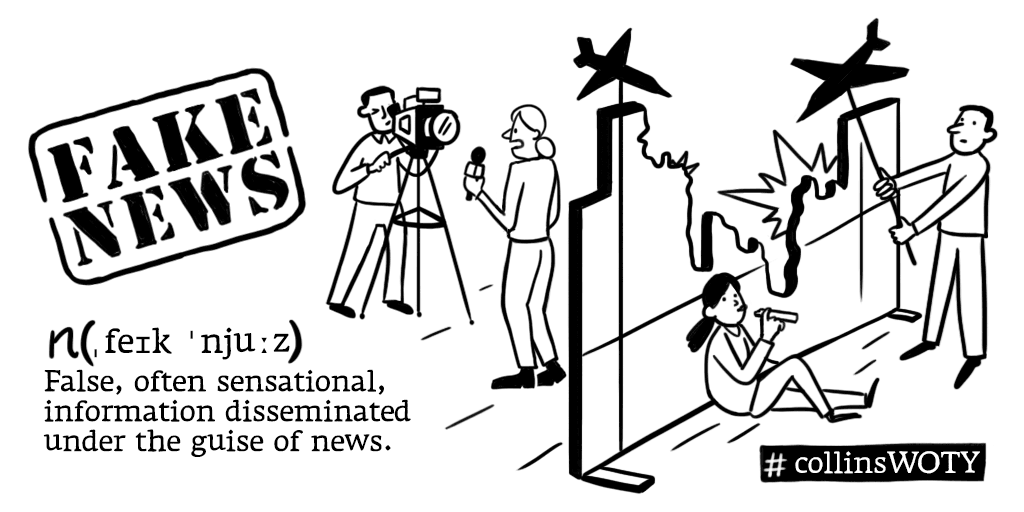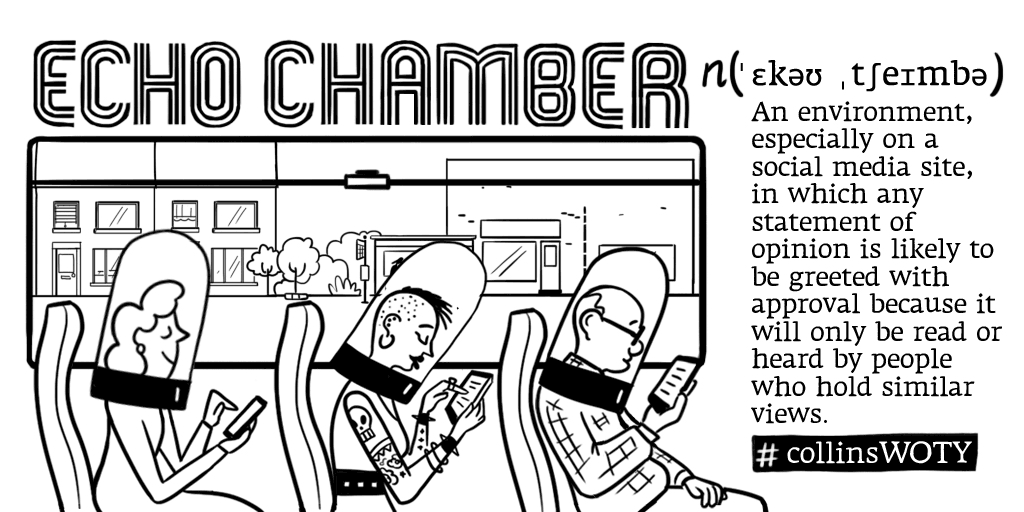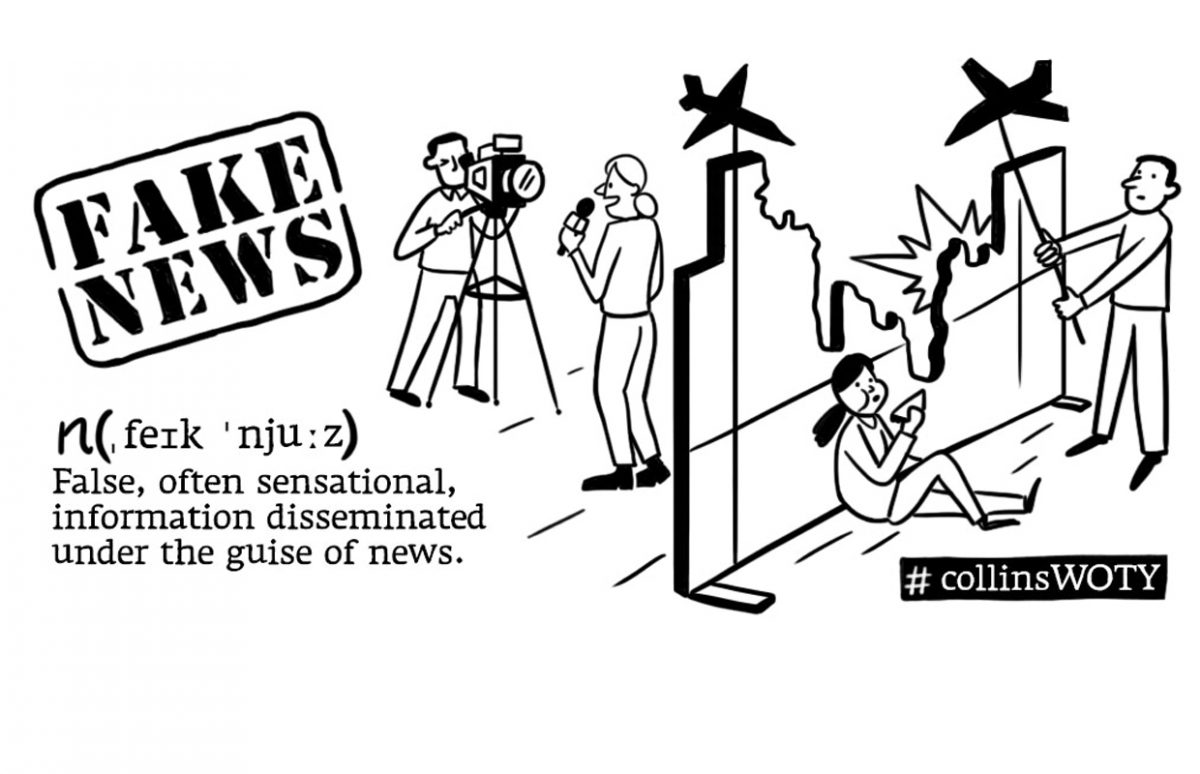Each autumn, Britain's Collins Dictionary announces a Word of the Year, a word or expression that has been omnipresent. For 2017, the WOTY is "fake news", a term often associated with President Trump.
The expression was used a lot during the election campaign. Since his inauguration in January, President Trump has brandished it regularly, on his Twitter feed and in speech. A particular target has been any news story linking his election campaign with Russian finance or intelligence.
Collins' research shows that use of the term has increased 365% this year.

The term was originally used to describe satirical news items on TV shows like The Daily Show, but, according to Collins, "Around 2005, the term began to be applied to false news stories that were circulated with malicious intent."
A perfect example of that is the story that appeared during the election campaign that Hillary Clinton and other leading Democrats were running a child sex ring from the basement of a pizza restaurant in Washington. The only modicum of truth in the "Pizzagate" story was that the restaurant owner was a donor to the Democratic party. The restaurant doesn't even have a basement. But that didn't stop an armed 28-year-old-man from turning up at the restaurant to "investigate" and firing his rifle. Luckily no one was hurt.
That story, and the term "fake news" are closely linked to another term that made the WOTY short list:

The echo chamber phenomenon has been blamed for surprise results in the U.S. election, the Brexit referendum, etc. An increasing proportion of people mainly consume news that an algorithm chooses for them in a "newsfeed". Facebook was challenged for its role in "pushing" news stories to Internet users based on their similarity to content they had previously viewed.
Only listening to one side of an argument is not good for impartiality or informed debate even when the information is biased but true. When you throw fake news into the mix, it can become dangerous.
During the presidential campaigns, whole teams of people produced fake news stories with political intent — generally discrediting political opponents and spreading within an echo chamber.
But there are also people who make a living out of fake news. Their aim is to get as many clicks or shares as possible, so the more outrageous the story the better. The more the story is shared, the more advertising revenue they can accrue.
Many such sites say that their content is clearly satirical and only made for entertainment. For example, readers seeing the headline:"Britain threatens to invade Switzerland over Toblerone shape row"should be able to work out that there is unlikely to be military incident over a chocolate bar. Especially when the site says it is written by "Doug Trench, Defence editor".
Whether fake news is truly sinister or just a bit of a laugh, it seems to be here to stay.
Copyright(s) :
Harper Collins
Tag(s) : "Clinton" "dictionary" "education aux medias" "EMC" "fake news" "media" "politics" "social media" "Trump" "word of the year"





